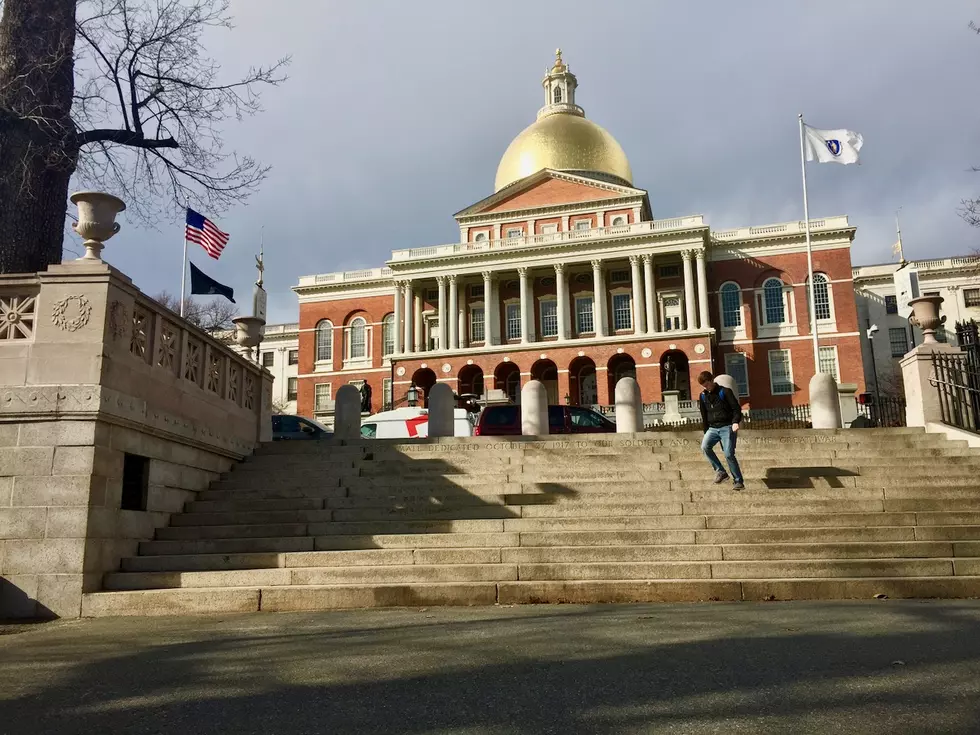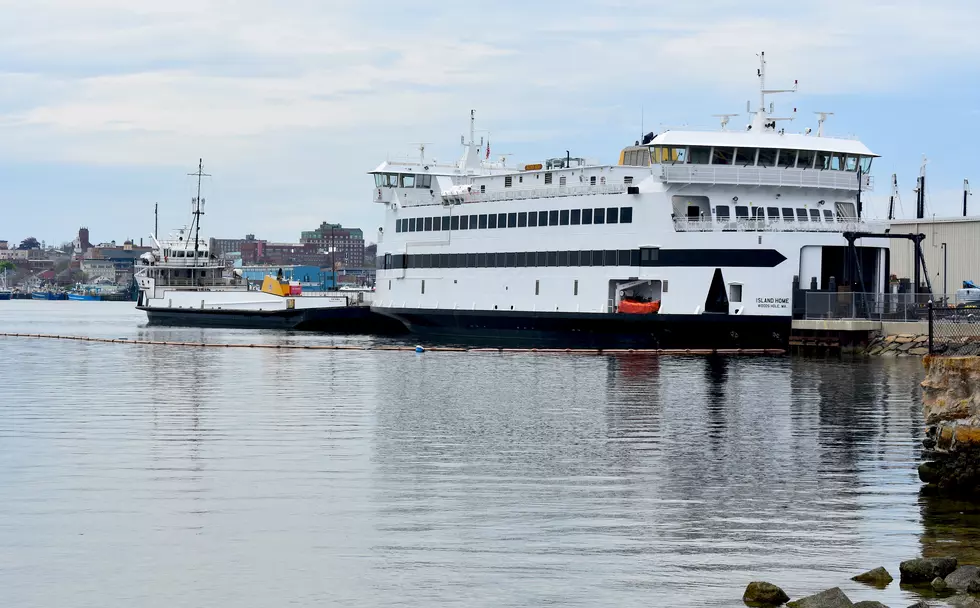
Gov. Baker Signs Fiscal 2020 State Budget
STATE HOUSE, BOSTON, JULY 31, 2019.....Gov. Charlie Baker on Wednesday accomplished something House Speaker Robert DeLeo, who joined the Legislature in 1991, said he does not remember seeing happen before: signing the annual state budget without issuing a single spending veto.
Placing the bottom line at $43.3 billion, Baker signed the annual budget just after 10 a.m. Wednesday, nearly a full month after the start of fiscal 2020 on July 1.
The Republican governor also went along with the Democrat-controlled Legislature's tweaks to a drug pricing control measure he proposed in January, and its $5.2 billion in Chapter 70 aid to local schools, nearly $70 million more than he recommended in the budget proposal he filed in January along with a series of school funding reforms.
Responding to reporter questions after signing the bill in his office, Baker revealed that he did not slash any spending because "this budget's balanced."
Governors often find spending to veto, often signifcant amounts, and lawmakers are usually quick to override those vetoes and restore the spending. Baker last year vetoed $48.9 million from a $41.7 billion budget.
"The lieutenant governor and I and the secretary and a lot of our team spent a lot of time talking about the line item stuff, and basically came to the conclusion that this budget is balanced," the governor said. "We're obviously going to pay a lot of attention to what happens to revenues in the first two quarters of the year, because we did have a lot of volatility in the revenue base for 2019, so we're going to work pretty hard to pay attention not just to the revenue side but also the spending side going forward."
DeLeo, who has been speaker since 2009 and before that served four years as House Ways and Means chairman, said he was "very pleased" to see a budget without any monetary vetoes, and that he could not remember a previous instance when a governor did not veto any spending.
"Quite frankly, that action I think says a lot in terms of the type of budget we put forward," he told reporters after meeting privately with House Democrats. "And no governor is ever afraid to veto or make changes or whatnot, so that's why I think we as a House are very proud of the job that the chair did and all the members of the House and their support.
The final budget increases spending 3.3 percent over fiscal 2019 estimates, and is built around a projected $30.099 billion in tax revenue, according to the Executive Office of Administration and Finance.
Lawmakers dropped Baker's proposals to tax opioid manufacturers and extend the tobacco tax to e-cigarettes from their final spending plan. It assumes an income-tax rate reduction to from 5.05 percent to 5 percent on Jan. 1, 2020, more than 19 years after voters approved a ballot question calling for a 5 percent income tax rate.
The budget uses $33.5 million in one-time revenue and features a planned $476 million increase to the state's stabilization fund, which the administration said is on track to reach a $3.3 billion balance by the end of fiscal 2020.
The administration and the Legislature use slightly different measures to calculate the budget's bottom line. Budget conferees had said their final report clocked in at $43.1 billion, and Baker's $43.3 billion total includes some money carried over from fiscal 2019. The two also tally revenues differently.
During their negotiations, the conference committee led by Rep. Aaron Michlewitz and Sen. Michael Rodrigues revised revenue projections for this year upward by $600 million. Baker said that "even with that $600 million addition," the final spending plan relies on 1.4 percent growth in tax collections.
The Massachusetts Legislature this year was the last in the country to finalize a spending plan and send it to the governor.
Baker returned six amendments to lawmakers, two of which he said needed urgent action by lawmakers set to break after Wednesday for their traditional August recess. One would affect an upcoming wind power procurement, and the other specificies that the meals tax will still apply during the sales tax holiday weekend set for Aug. 17 and 18.
The budget aims to rein in prescription drug costs by authorizing the Executive Office of Health and Human Services to negotiate supplemental rebates for MassHealth on the most expensive drugs. The language differs from what Baker originally proposed in January, and the governor said that what lawmakers put forward "is workable and implementable, and we'll pursue it."
"I don't think the option, from our point of view, was to re-engage a debate that was so contentious and so intense over the course of the budget process itself, and I think we all respect where the Legislature landed on this one," he said.
Though he did not strike any spending from the budget, Baker did use his veto pen seven times, knocking out language within line-items that primarily proposed new reporting requirements for studies by state agencies. His vetoes include a feasibility study of using state property as a "staging area" for micro-mobility devices that could be used as transportation to and from MBTA stations, and a report on environmental justice policies and staffing.
The conservative Massachusetts Fiscal Alliance blasted Baker for not vetoing any earmarked spending, as he did in each of the last four budgets he signed.
"It's a failure in our democratic process when the branch of government charged with reigning (sic) in spending does not exercise its duty to use the line item veto," MassFiscal spokesman Paul Craney said in a statement. "Even Governor Patrick regularly vetoed the excessive earmark habits of the legislature."
Baker was joined for the budget signing by Lt. Gov. Karyn Polito, Administration and Finance Secretary Michael Heffernan and members of the governor's Black and Latino advisory commissions, who touted the inclusion of $20.3 million to support recommendations they made last year.
More From WBSM-AM/AM 1420






![Here’s Mud in Your Eye [PHIL-OSOPHY]](http://townsquare.media/site/518/files/2020/08/RS31453_GettyImages-624494724-scr.jpg?w=980&q=75)
![No Recess Until State Budget in Place [OPINION]](http://townsquare.media/site/518/files/2018/07/deleo.jpg?w=980&q=75)

